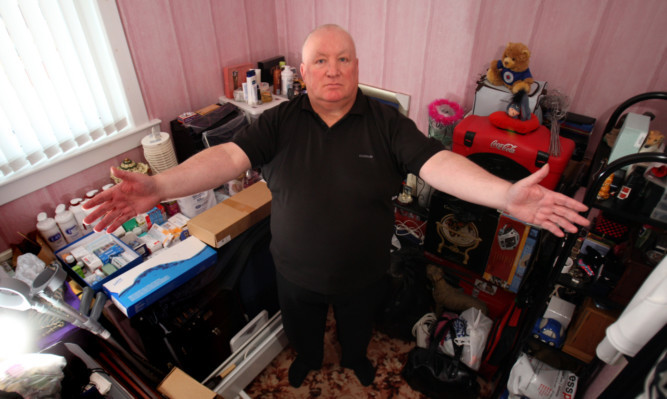The UK Government’s controversial “bedroom tax” policy could be thrown into chaos later this month.
The Department for Work and Pensions is launching a bid to overturn a landmark ruling that size does matter when it comes to defining a bedroom.
If it fails, it will set a precedent that could spell the beginning of the end for the so-called bedroom tax.
At the heart of the matter is Fife man David Nelson, who won a groundbreaking test case in Kirkcaldy a year ago when top QC Simon Collins ruled that size and usage should be taken into account when deciding what constitutes a bedroom.
The DWP will appeal that decision at a hearing in Edinburgh on September 18.
It will be the first appeal by the Government on the grounds of room size and this time the decision carries more weight.
Mr Nelson is hoping to make history for a second time by persuading the judge to dismiss the DWP’s appeal and uphold the original decision.
Campaigners against the “bedroom tax” are expected to attend the hearing from across Scotland and local authorities and housing associations will await the result with interest.
The appeal follows MPs voting to exempt disabled people from the policy entirely and ruling social housing tenants should be given a reprieve until they receive a reasonable offer of alternative accommodation.
About 75,000 Scottish households are affected by the policy that resulted in people with one spare bedroom having their housing benefit cut by 14% and those with two of more spare rooms facing a 25% reduction in benefit.
Mr Collins ruled last year that a room measuring less than 50 square feet is not a bedroom and a room measuring between 50 and 70 square feet could only be used by a child aged under 10.
The DWP maintains that if a room can accommodate a bed then it is a bedroom.
Mr Nelson’s solicitor, Graeme Sutherland from Fife Law Centre, said the decision of the second tier tribunal would be significant.
“This is the first upper tier tribunal on these grounds in the UK and it has huge implications for the whole country,” he said.
“The DWP are appealing against the first tier tribunal and have decided to take it higher for judicial authority on the matter.
“There are many cases across the UK which have followed the Fife decision on room size.
“All of these cases would fall either to be underscored or appealed on the grounds of David’s appeal on the 18th.
“To be honest, if they say there is no minimum size I think it would throw many local authorities into even worse chaos than they’re in at the moment.”
The DWP would have the right to appeal to a higher court should the decision go against them but Mr Sutherland said that would not be easy.
“You are speaking about fairly significant expense to take it further,” he said.
“If the appeal is unsuccessful on the issue of room size I would hope the DWP would leave it at that.
“I think the original decision was sensible and Mr Collins justified his position well so I wouldn’t think it could be considered an error of judgment.”
Mr Nelson, who has vowed to take his case to the European Court of Human Rights if necessary, said he was looking forward to the next stage of his fight.
“I’m quite happy to go to appeal,” he said.
“This could set a precedent for the whole of the UK.”
The DWP declined to comment until the outcome of the case.
